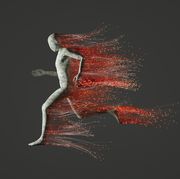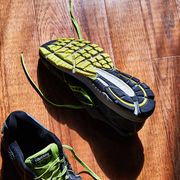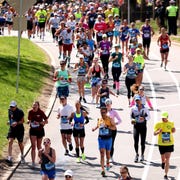Nausea After Running: The Reasons Running Can Make You Feel Sick
For those who believe spilling your guts is a sign of a race well run, it’s not.

Unless you have ironclad guts, there’s a good chance you’ve thrown up or become nauseous after running. Upchucking is an unpleasant occurrence that doesn’t discriminate between weekend warrior or seasoned pro—just take the end of the 2020 Marathon Project race in Arizona.
Finishing second overall, Noah Droddy ran a huge personal best of 2:09:09, putting him at the time as the ninth all-time fastest among American runners. But as he told the Citius Mag podcast following his huge race, he was battling nausea the final few miles, and it’s a common occurrence when he races. “To be honest, I’ve thrown up after every marathon I’ve done. Stop. Throw up. No pause,” he said on the podcast.
So no, feeling some nauseous after running won’t necessarily sidetrack your entire effort, but knowing its possible causes is essential if you want to avoid regurgitating after (or during) a tough run. If you’ve ever found yourself draped over a trashcan after picking up your race medal, here are some possible reasons for your gut’s dissatisfaction—and the ways you can try combating it.
Watch Next


How Well Does AI Know Running?

How Many Miles Should You Run a Week?

Wear Patterns on Running Shoes

7 Strategies for Building Endurance












